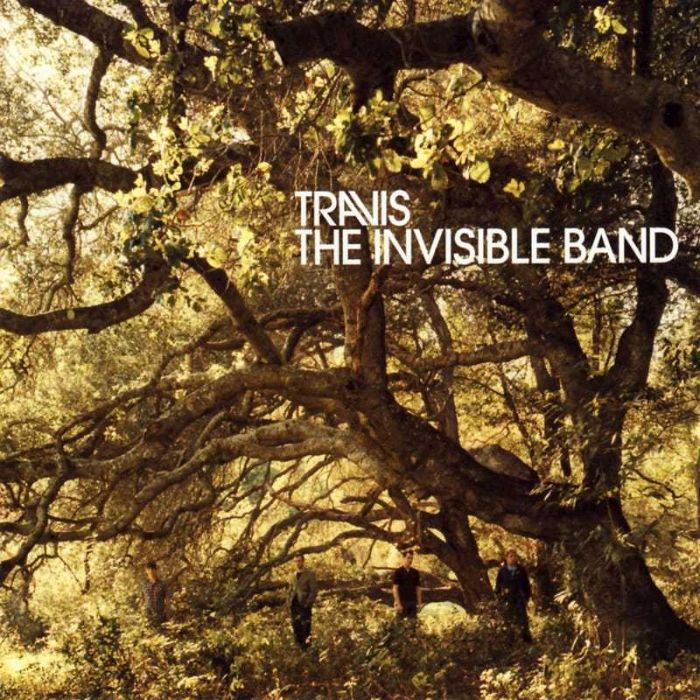The Invisible Band by Travis (Review)

Love them or hate them, nobody can state that Travis’ widely acclaimed success has come undeserved. Formed 10 years ago, yet virtually unknown until the single release of “Why Does It Always Rain On Me?,” which quickly became the festival anthem of the summer of 1999. Travis have since picked up many well-deserved awards, including a Q award and two Brit awards in 2000 (for best album and best band). The Invisible Band is their third offering.
Over the last couple of years, since Britpop ground to an abrupt halt, Travis have established themselves as the band of choice for just about everyone, ranging from ex-Oasis fans who’ve grown out of joyriding, to the new improved, slightly more grown up ex-fans of pop groups such as Steps who found The Man Who made a refreshing change to dancing in front of the mirror. The astonishing success of The Invisible Band (4 million copies sold so far), however, has come at a price and the pressure for it to do well and match up to the phenomenal success its predecessor has been enormous.
Lead singer/songwriter Fran Healy recently found himself sitting with an acoustic guitar and the terrifying task of writing the follow-up to one of the best British albums of 2000. Healy revealed recently that he was, in fact, “shitting himself,” and with good reason. The expectations were tremendous, and had the album been a flop, it could have killed their admirable status and given their career paths a declining turn toward the trash heap of the UK music scene.
Peculiarly, The Invisible Band shares its producer with Radiohead’s Kid A (as Radiohead fans will know, this was not one of the cheeriest albums of the year). Travis may have been dubbed “miserablists,” but this album incorporates “Writing to Reach You”-styled soulful yet melancholy crooning with slightly more upbeat melodies in tracks such as “Flowers in the Window,” “Follow the Light,” and “Side.”
The opener and single release “Sing” tells you immediately that this album is going to be huge. With Healy’s familiar, plaintive croon and a familiar taste of the Travis-style chorus, it’s extremely catchy with lyrics so simple they’re almost impossible to escape the mind. Think “Driftwood” meets a more tuneful version of Blur’s Parklife. “Pipe Dreams” is another album highlight, exposing Healy’s clever lyrical talent, as does “The Cage,” portraying true Travis-style chillout with somber undertones.
However, as good as an album might be, there’s always at least one low point. Although there isn’t a track that sticks out as being too inferior to the rest, “Dear Diary” seems to have been written somewhat half-heartedly and with relatively little thought into the lyrical meaning and style. It almost seems unfinished or perhaps rushed whilst being written. That being said, it wouldn’t offend a listener and Travis could have done a lot worse.
A difficult task for Travis to decide was the style and direction The Invisible Band would take. Having created a monster hit with The Man Who, it was vital that this album not be perceived as a reclaimed cast-off of its’ predecessor whilst also moving on from the style established on their debut, Good Feeling. A third album is always tricky, and the band had two options; forget about the type of music that got them where they were and completely re-style it (like Stereophonics falling flat on their faces with their very gloomy third album Just Enough Education to Perform), or produce an album relatively similar to the former, but less powerful and with a sense of shuffling about it (such as the addition to the Destiny’s Child trilogy, Survivor).
Travis have, ingeniously, found a happy medium between the two, and have produced an extremely accessible, melodic album which may well cause a few more awards to head in Travis’ direction. This just about matches up to the hard-to-accomplish success of The Man Who, introducing a slightly different side to Travis, and not one to be overlooked. Most definitely worth a listen.
Written by Sarah Harris.